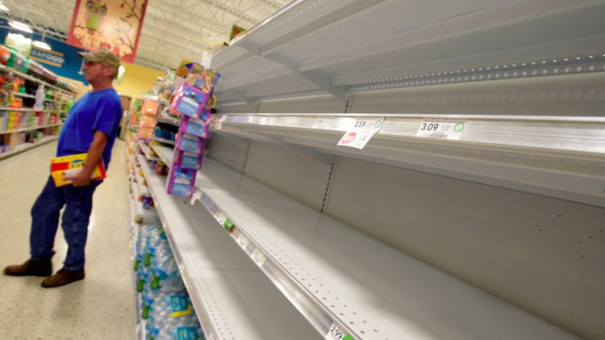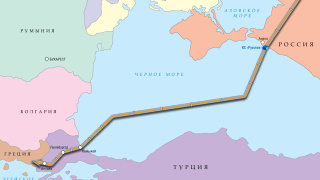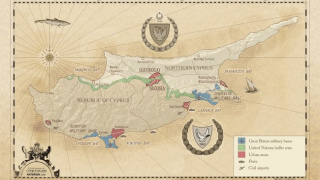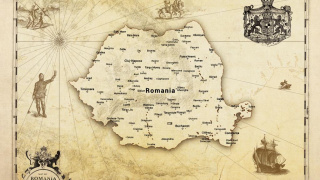How the British Prepare for Brexit
UK residents seize panic. The British are massively stocking drugs, food and seeds, preparing for traffic jams in ports and on the highway and empty shelves in stores. There are concerns that withdrawal from the EU without any agreement will lead to a total deficit
The Brexit talks are finally deadlocked. The version of the treaty with the EU, which Teresa May insists on, cannot be penetrated in parliament. All other options from the doorway are rejected by Brussels. The date of Brexit remains the same - March 29, 2019. The higher the risk that parting with the European Union, the United Kingdom will be in the order of force majeure - in terms of no deal.
In this case, Britain will be in an extremely difficult situation. It is too dependent on imports and freedom of movement. One third of the food needed is imported by the United Kingdom, with 70 percent of imports coming from the EU. Tens of thousands of people cross the English Channel daily to go to work or return home.
If classic customs are carried out at the borders, as in the old days, then the whole daily life of Great Britain will be under threat. Freight trucks with goods and products will stand in traffic jams for days, products will deteriorate. People will crowd for hours at the border control - despite the fact that most of the ferry docks have no infrastructure yet.
Cancellation of all contracts with the EU will become a classic force majeure, which will allow suppliers to terminate contracts or arbitrarily change their conditions. All this is fraught with total chaos on the roads and in ports, empty shelves in stores and a shortage of medicines, especially vital ones.
In the case of Brexit in the face of no deal, the government has already created an action plan. More than two billion dollars spent. More than 10 thousand employees were hired for emergencies. There are even army patrols that take to the streets to help the police. Written instructions for business representatives - more than a hundred pages available online.
However, businessmen participating in opinion polls admit that they absolutely do not understand how they will work after March 29. 94 percent of entrepreneurs complained about the lack of information on Brexit. While large manufacturers produce goods for the future, clogging up warehouses. A small business is just waiting.
What ordinary people should do is also incomprehensible. Government instructions carefully ignore anything that might be of interest to ordinary citizens.
“Citizens should get ready” - that's all that Mrs. May recently said about this. However, citizens began to prepare in the fall. They buy canned food, cereals and flour. They put solar panels and generators, for fear of massive outages. They buy seeds and plan to grow vegetables in their plots in spring. With great concern, the British are stocking up on coffee. Almost all of its deliveries go to the country through Germany. In light of the Brexit controversy, the British fear that the German "friends and partners" will block their entire supply of coffee.
Serious problems fear people who are forced to regularly take prescription medications. On the possible interruptions in the supply of medicines say the head physicians of hospitals and simple therapists. And if paracetamol can be purchased for future use, then with insulin or antiepileptic drugs this will not work out - the prescription for them is from two to six weeks. The same problems arise with antibiotics.
Pharmaceutical companies are recommended to have at least one and a half month supply of medicines. For them, refrigerators are already centrally procured. But patients do not trust the ability of the government to quickly solve their problems. Insulin-dependent patients are legally and illegally stored in insulin. Other patients are planning to buy drugs via the Internet in India, although this is prohibited by British law.
Panic is used for political purposes both inside and outside of England. On the one hand, the preparation for Brexit without any agreements is carried out demonstratively - specifically to make an impression on the stubborn European negotiators. On the other hand, 48 percent of Britons who voted against Brexit aggravate the situation, arguing that withdrawal from the EU will lead the country to a complete collapse. Opponents of Brexit promise a drop in the pound in April, a sharp rise in prices for imports, and an outflow of labor. This is done in order to achieve a second Brexit referendum on the wave of mass hysteria.
However, in 2016, the British have already passed all this. The consequences of their historic referendum were not so terrible for the economy. Yes, the pound has weakened, but in the country came hordes of foreign tourists, for whom Britain used to be too expensive a destination. Property prices, slightly falling immediately after the referendum, resumed growth.
For any Brexit - contractual or “without rules” - the United Kingdom expects a slight drop in living standards. However, it can later be compensated by a decrease in unemployment and an increase in production.
In general, the return to shortages, queues and traffic jams is not something unique. The British just before many embarked on the path of impoverishment of the middle class and the rollback of the standard of living to the indices of the 1960–1970s. This process is a long time. The luxury lifestyle with overseas travel and designer homes is a thing of the past, along with cheap loans and low prices. The consumer bubble of the “golden billion” was blown away in 2008. Since then, the middle class is rapidly returning to the modest lifestyle of their grandparents.
Communal services have returned to use by residents of large cities - in expensive metropolitan areas, tenants are increasingly renting apartments into several people in order to divide the rent. The high cost of meat and fish breeds more and more vegetarians and vegans. The car again becomes a luxury, the middle class is buying bicycles in large quantities. Retailers complain about the decline in sales, but second-hand are becoming increasingly popular.
What once seemed an indispensable affiliation of sociastic countries, today has become a reality for residents of capitalist Europe. One hundred days before Brexit, the British demonstrate the sad future that the middle class of the West awaits around the bend - shortage, lack of living space, interruptions in imports and even canning vegetables for the winter.










